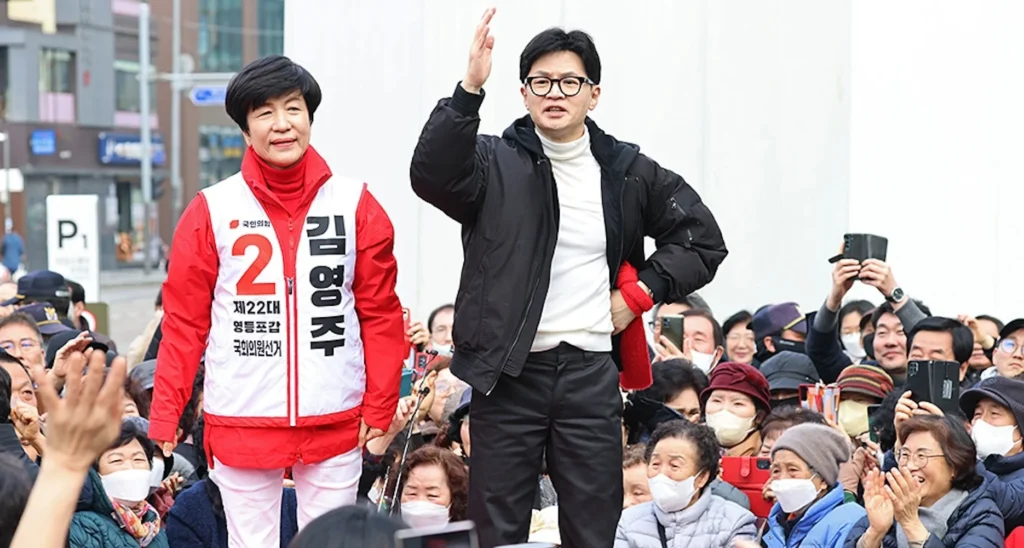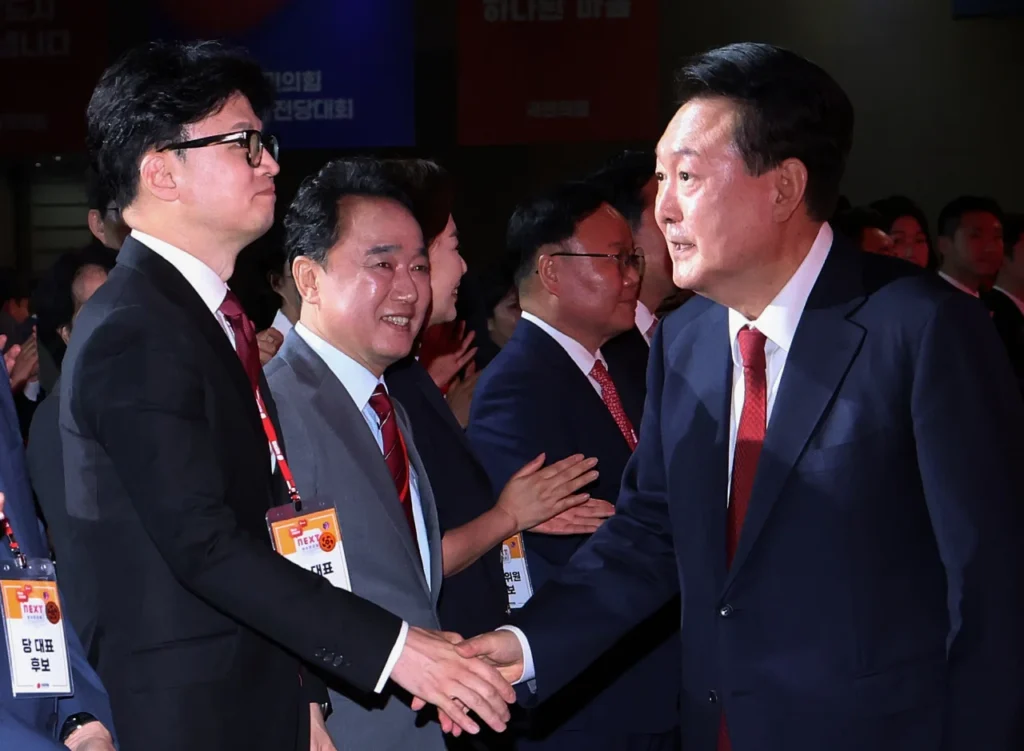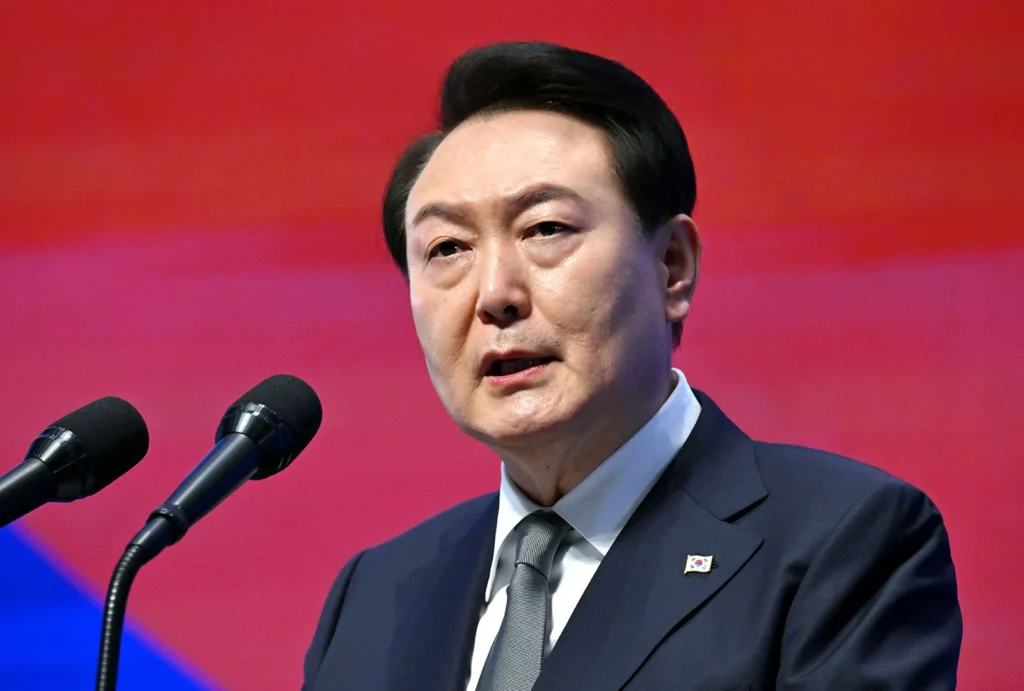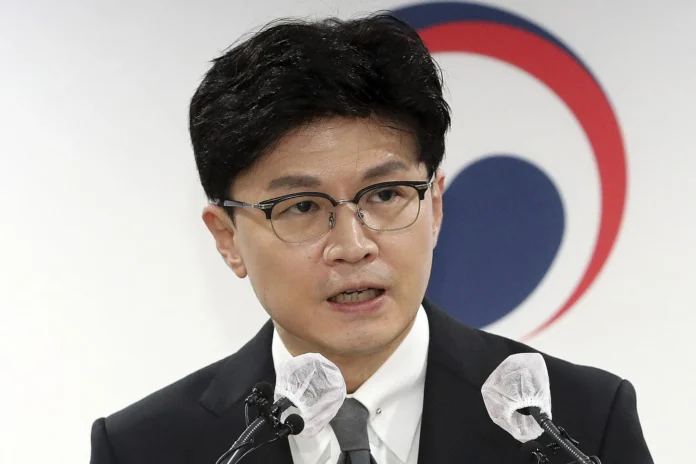South Korea’s Political Crisis
Political landscapes can shift overnight, and few stories illustrate this better than South Korea’s recent crisis. At the heart of the upheaval stands Han Dong-Hoon, once regarded as President Yoon Suk-Yeol’s right-hand man, now labeled a ‘traitor’ for his role in overturning Yoon’s martial law order and leading his impeachment. His dramatic shift from trusted ally to political opponent has captivated the nation and reshaped South Korea’s political trajectory.
The Unexpected Declaration of Martial Law
On the night of December 3, Han Dong-Hoon was driving home when he heard an alarming announcement on the radio—President Yoon was preparing to address the nation. Unbeknownst to Han and much of Yoon’s party, the president had decided to declare martial law. His justification? A need to suppress so-called “anti-state forces” and suspected North Korean sympathizers.
Han recalls his immediate reaction: “We must stop it. If it isn’t lifted that very night, a bloodbath might occur.” The fear that decades of democratic progress could be undone within hours was overwhelming. With little time to react, Han and other political figures sprang into action, scrambling to make sense of the situation and prevent a crisis from spiraling out of control.
A Nation in Chaos

Following Yoon’s declaration, opposition leaders called for mass protests. Thousands took to the streets, clashing with police and blocking military units from enforcing the order. The scenes in Seoul were chaotic—angry demonstrators pushed back against riot police, while political leaders scrambled to understand the legal basis for Yoon’s actions.
Lawmakers from the opposition, and even some from Yoon’s own party, stormed the National Assembly in a desperate attempt to nullify the president’s command. Among them was Han, who would soon take a decisive stand. He later recalled the sheer tension of that night, as debates over the legality and necessity of martial law unfolded in real time. In the hours that followed, efforts to overturn the martial law order proved successful. However, the political consequences for Han were just beginning.
From Trusted Ally to Political ‘Traitor’
For years, Han and Yoon had been inseparable. Their careers had intertwined since their time at Seoul National University, leading to a strong alliance during Yoon’s rise to the presidency in 2022. Han was instrumental in the administration, first as Minister of Justice and later as leader of the ruling People Power Party (PPP).

However, Yoon’s presidency faced mounting struggles, including a significant defeat in the 2024 parliamentary elections. As criticism of his leadership mounted, the president leaned further into authoritarian tactics, culminating in his ill-fated martial law attempt.
When allegations surfaced that Yoon had ordered the arrest of political figures—including Han—during his martial law attempt, the once-loyal ally made a drastic decision. He switched his stance and backed a second impeachment vote, ensuring Yoon’s removal from office. To Yoon’s supporters, this was an act of betrayal. But to Han, it was a necessary step to preserve democracy.
A Leader Without a Party
Despite initially resisting impeachment efforts, Han ultimately supported the move, a decision that led to his resignation as PPP leader. Many conservatives saw him as a backstabber, turning against the very man who had propelled his career. Han, however, remains steadfast in his choice, stating, “I wanted nothing more than for this government to succeed. I am deeply pained by the outcome, but I believe it was necessary for South Korea’s continued progress.”
Han’s resignation from the PPP left him politically adrift. While some viewed his actions as courageous, others saw him as an opportunist who abandoned his principles when it was politically expedient. In the days following Yoon’s impeachment, Han found himself at the center of public debates, with analysts speculating on whether he had permanently damaged his political career or set himself up for a remarkable comeback.
A Political Future in Question

With Yoon suspended and facing charges of insurrection, Han stepped back from politics—at least momentarily. He used the time to reflect and write a memoir, The People Come First, offering an insider’s account of the crisis. The book, released just as the Constitutional Court concluded Yoon’s impeachment trial, has fueled speculation about Han’s next move.
In South Korea, publishing a memoir is often seen as a precursor to a political comeback. Han’s book highlights key policy proposals, including potential constitutional reforms. Some observers believe he is positioning himself for a presidential run should a snap election be called. The memoir provides a detailed recounting of the tumultuous events, outlining Han’s justifications for his decisions and hinting at a roadmap for the future.
Public Sentiment and Political Hurdles
While Han’s name remains in political discussions, his approval ratings have plummeted. A recent poll indicated that his support for a presidential bid sits at just 6%, a steep decline from the 22% he enjoyed in early 2024. Within the PPP, he continues to face backlash from those who believe he betrayed both his party and the former president.
However, Han dismisses claims that his memoir is a strategic move, stating, “I have published a book to share my truth. I am not returning with any political maneuver, just a message for the people.” Whether the public believes him remains an open question.
The Apology to the Nation
While Han does not regret voting for Yoon’s impeachment, he acknowledges the turmoil that followed. “Martial law was a grave mistake—one that does not align with democratic principles. As a leader of the ruling party that put Yoon in power, I deeply apologize to the people.”
His future remains uncertain, but one thing is clear—Han Dong-Hoon’s decisions have cemented his place in South Korea’s turbulent political history. Whether he remains a controversial footnote or emerges as a leader in his own right will depend on how the next chapter of his career unfolds. For now, South Koreans are left to grapple with the consequences of his choices, as the country navigates an uncertain political future.


